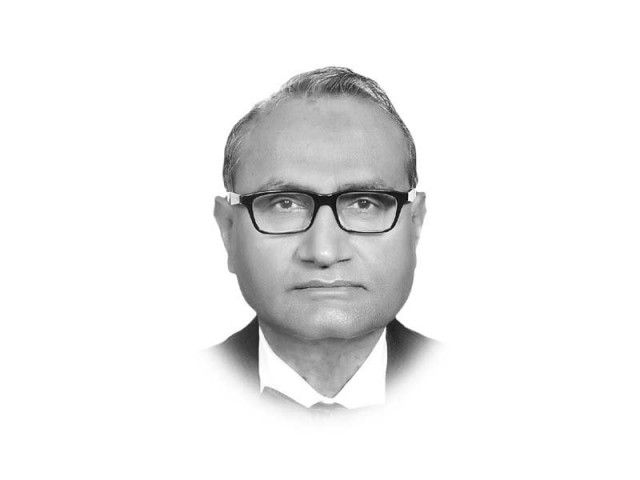The exchange rate fiasco
The SBP autonomy is part of the PTI manifesto

The writer is a senior economist. He can be contacted at pervez.tahir@tribune.com.pk
Being responsible means that the SBP should inform political leadership before taking such decisions. If that requires creating a mechanism, so be it. This government of super novices did not know that a mechanism already exists. On November 29, 2018, the finance minister chaired the meeting of this mechanism called Monetary & Fiscal Policies Co-ordination Board. Under the IMF pressure in 1994, legislation had to be done to allow the SBP some measure of autonomy. A clever move was made to circumvent it by inserting Section 9B in the SBP Act in 1994. Under this very Section, the Monetary and Fiscal Policies Co-ordination Board was set up. The IMF now wants this board to go.
Chaired by the finance minister, other members include ministers for planning and commerce and two academics brought specially in a subsequent amendment to the SBP Act in 2012. The poor governor is the lone, marginalised member from the SBP. The function of the board is to “coordinate fiscal, monetary and exchange rate policies and to ensure consistency among macroeconomic targets of growth, inflation and fiscal, monetary and external accounts.” In this meeting, the exchange rate volatility is normally discussed, though a specific determination of the desired magnitude of depreciation is avoided due to the sensitivity of the issue. However, there is invariably a last-minute informal communication between the governor and the finance minister, which reports say happened in this case also. Asad Umar — thinking perhaps on the lines of party manifesto or to remain on the path of a possible, though not necessarily likely, IMF programme — was in quietude. With a civil service background, the present governor is unlikely to do it alone. The Monetary Policy Statement announced on the very next day hiked the policy rate by 1.50 basis points to 10 per cent in one go. It is obvious that the two shocks were coordinated by a mechanism that exists.
Why should an unelected person enjoy so much power is a question with a long history. Independence was not even an issue until the two oil price booms in 1970s when stagflation emerged as a major concern. By the start of 1990s, the so-called Washington Consensus had independence as a key pillar to keep inflation low. The impact of financial crisis of 2008 has reopened the question. In developing countries, where growth takes precedence over stability as political class is forced by the public to create jobs, encourage housing, subsidise basic needs and ensure a modicum of social protection, a central bank acting on its own is a matter of political concern. De facto independence remains a challenge, despite dejure provision mostly as an IMF conditionality.
Published in The Express Tribune, December 7th, 2018.
Like Opinion & Editorial on Facebook, follow @ETOpEd on Twitter to receive all updates on all our daily pieces.















COMMENTS
Comments are moderated and generally will be posted if they are on-topic and not abusive.
For more information, please see our Comments FAQ